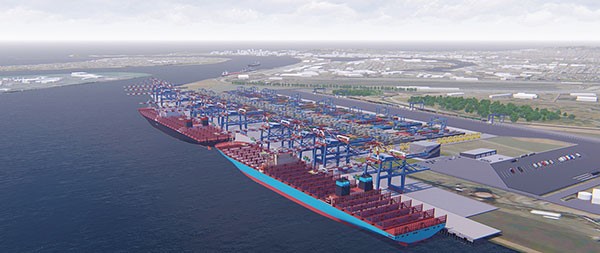Ports and Shipping Policy in Australia: A Wicked Problem

99% of all imports and exports across Australia come in and out via shipping ports. As an island nation, we obviously have no rail and road links to the rest of the world. There are big ports and regional ports, container ports, bulk ports and general cargo ports. Our everyday existence depends on the supply chains though our ports. We are under-performing in many areas. For example, over the past few decades we have reduced our local capacity to process our own fuel supplies from our abundant resources of oil and gas, and now largely depend on foreign ships to bring petrol and diesel to our shores. Fuel security is a looming issue. We have on average about 3 weeks supply in storage for the entire country.
Given the critical strategic nature of ports and shipping in Australia, one might expect a bipartisan and national focus on the topic. It does not exist. Ports remain a State and Territory matter. Privatisation has placed many ports in overseas hands. Shipping policy depends on which global companies come and go to the ports as the market dictates. Coastal shipping has reduced from over 100 Australian flagged vessels in the 1970s to fewer than 14 this year. Maritime employment has shrunk to a few thousand people, mainly in harbour towage and offshore oil and gas rigs. Ports are becoming automated and capital-intensive in their stevedoring operations. There is an open market in this space. Price considerations drive all decisions.
So who cares?
Apart from the issue of national sovereignty, there are issues of long term economic goals. For example, the global shipping fleet is moving rapidly towards really big container ships (over 10,000 containers per vessel), and there is no port in Australia that can accommodate them. We lag in infrastructure investment in our ports, and the rail and road connection needed to move the containers across the hinterland. The newer ships also burn diesel fuel, and under new global regulations Australia will have to seek exemptions from climate change agreements to use smaller vessels burning dirty bunker oil. Not a good look in the next decade or two.
Macquarie University hosted a public Lighthouse Lecture, attended by over 100 industry executives and academic staff, on the 4th of March at the National Maritime Museum to examine these issues. The CEO of the Port of Newcastle (now the largest coal export port in the world), Mr Craig Carmody, delivered a keynote address on the challenges in the areas of policy around ports and shipping in Australia. He was an adviser to the Federal Minister for Transport for some years in this area, and was recently the Director of Strategy for a local subsidiary of one of the world’s biggest shipping companies.
The transcript of Mr Carmody’s speech is available for download. The video of his speech is embedded below:
